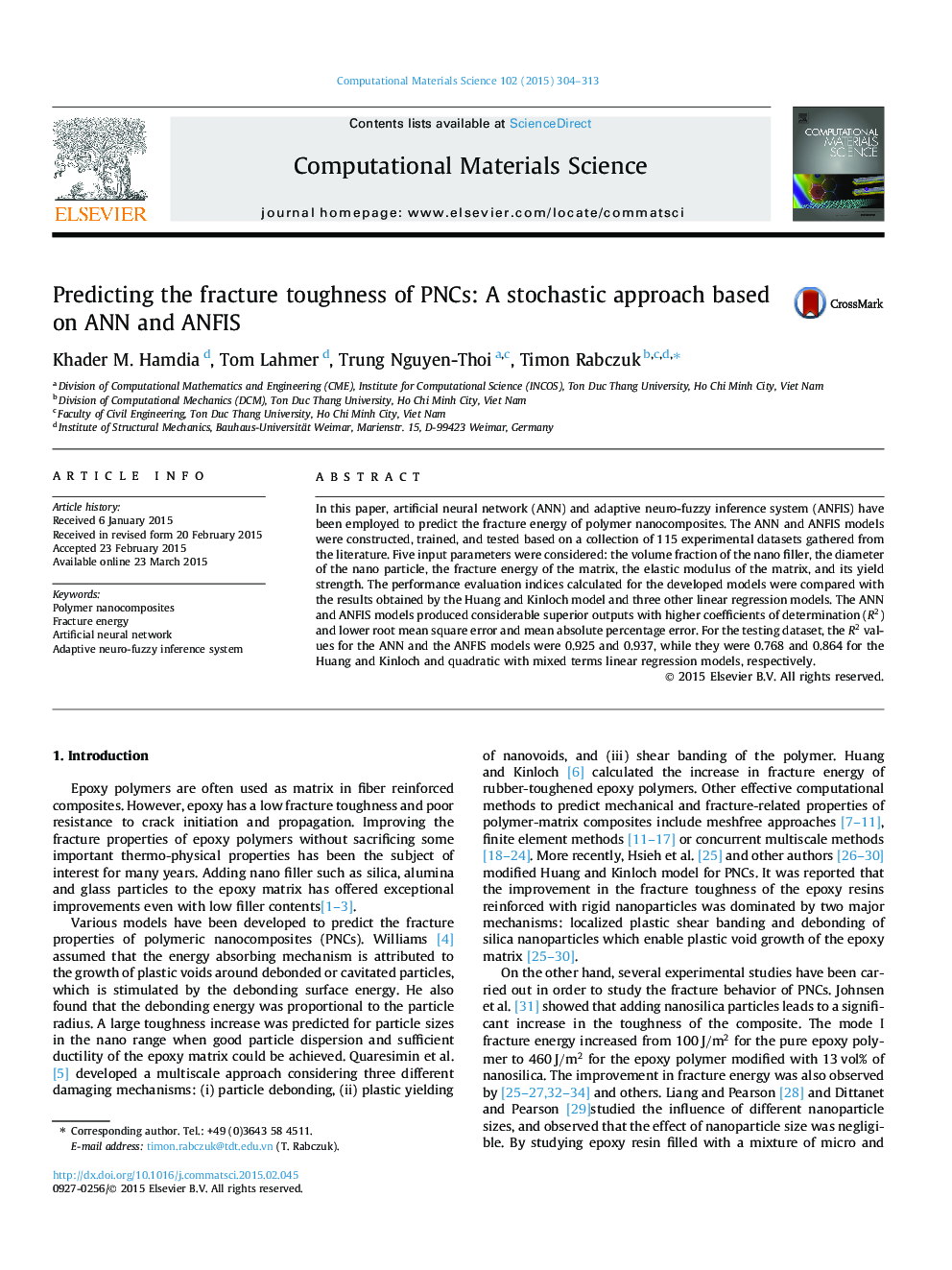| Article ID | Journal | Published Year | Pages | File Type |
|---|---|---|---|---|
| 1560289 | Computational Materials Science | 2015 | 10 Pages |
•The fracture energy of polymer nanocomposites is investigated.•ANN and ANFIS are employed.•The performance indices are compared with the results obtained by other methods.•The parametric studies confirm the superior performance of ANN and ANFIS.
In this paper, artificial neural network (ANN) and adaptive neuro-fuzzy inference system (ANFIS) have been employed to predict the fracture energy of polymer nanocomposites. The ANN and ANFIS models were constructed, trained, and tested based on a collection of 115 experimental datasets gathered from the literature. Five input parameters were considered: the volume fraction of the nano filler, the diameter of the nano particle, the fracture energy of the matrix, the elastic modulus of the matrix, and its yield strength. The performance evaluation indices calculated for the developed models were compared with the results obtained by the Huang and Kinloch model and three other linear regression models. The ANN and ANFIS models produced considerable superior outputs with higher coefficients of determination (R2R2) and lower root mean square error and mean absolute percentage error. For the testing dataset, the R2R2 values for the ANN and the ANFIS models were 0.925 and 0.937, while they were 0.768 and 0.864 for the Huang and Kinloch and quadratic with mixed terms linear regression models, respectively.
